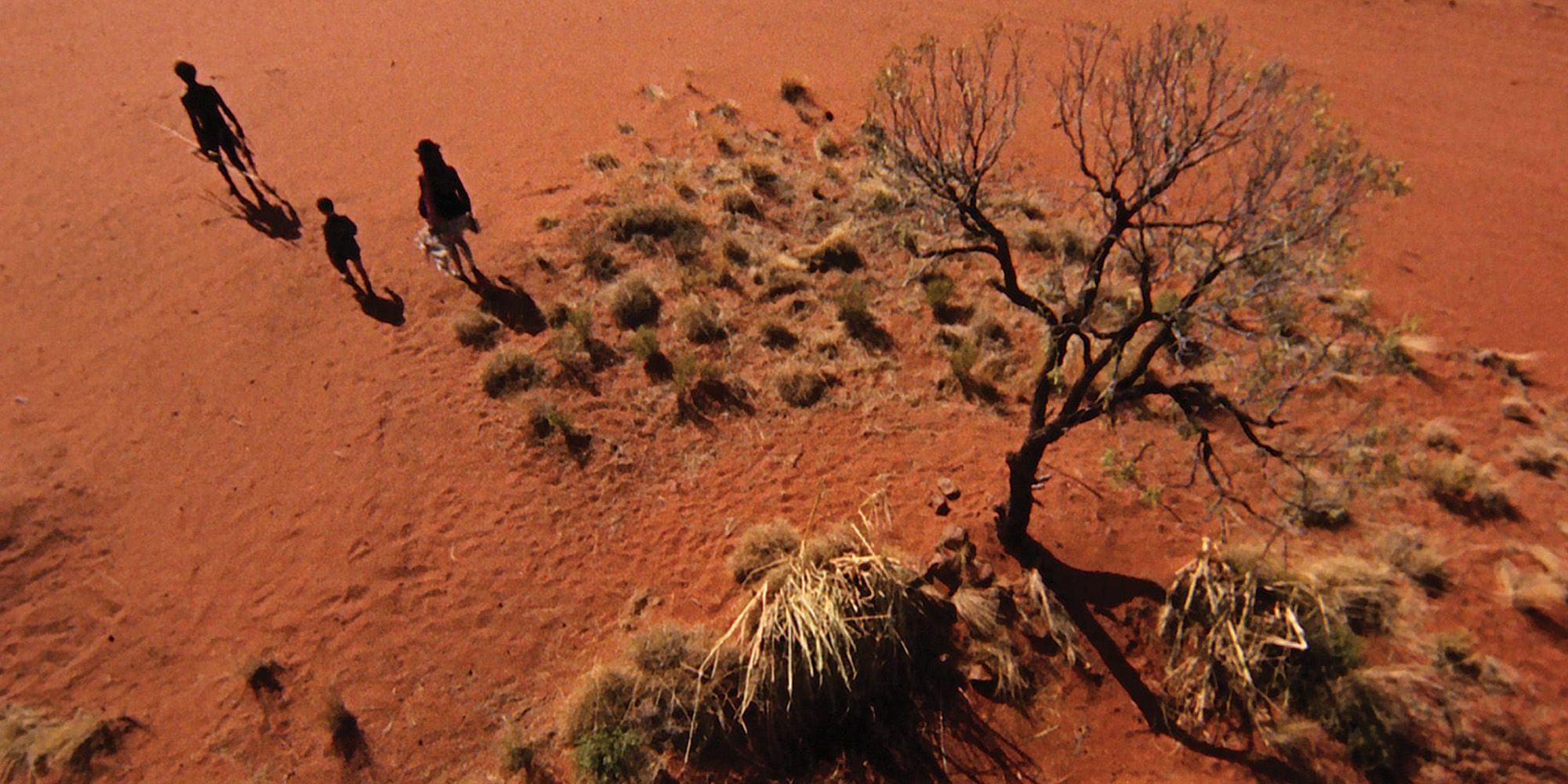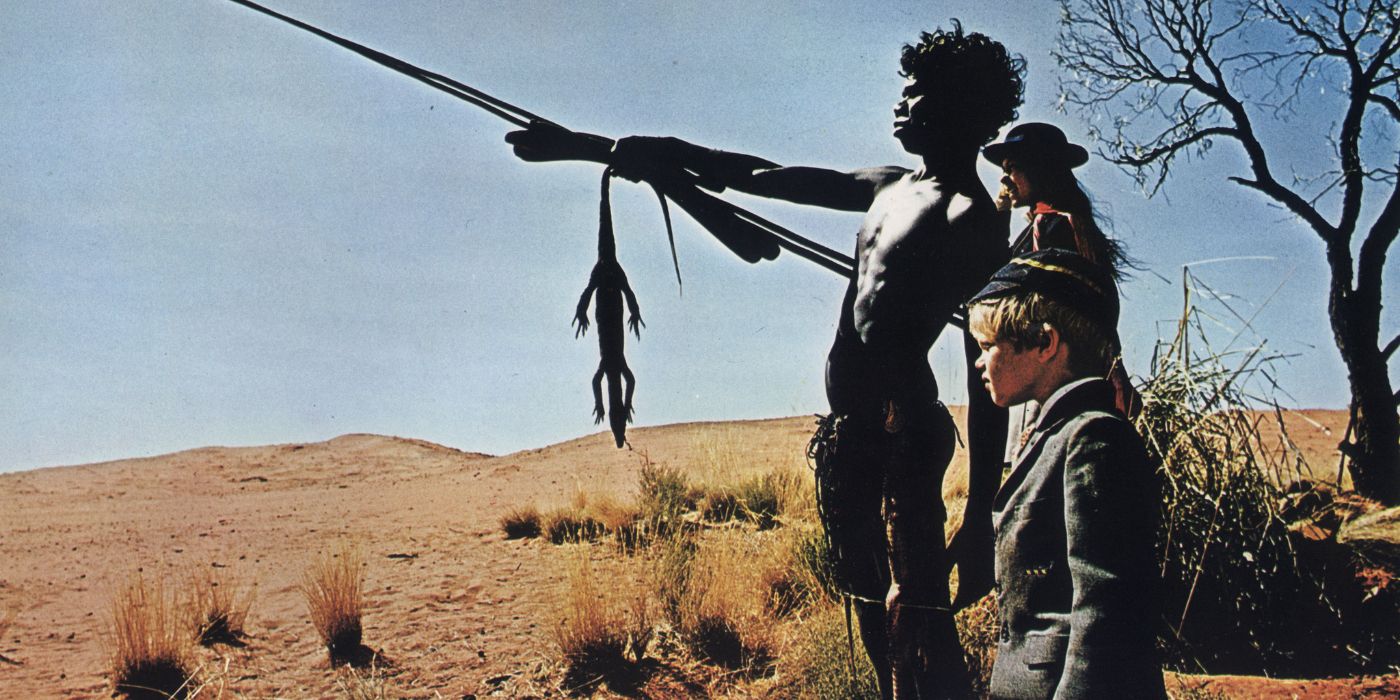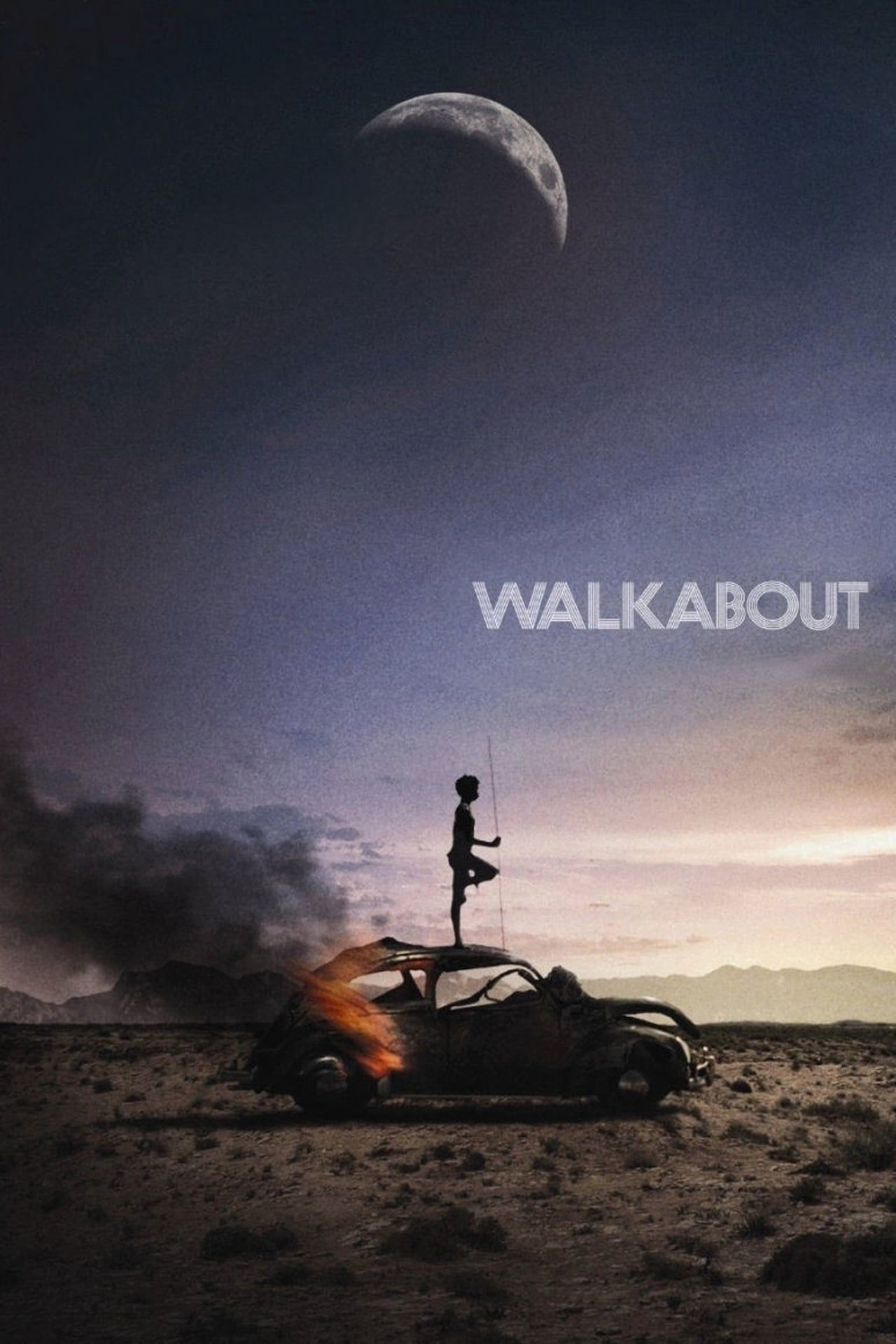
Few films are as haunting, strange, and unforgettable as Nicolas Roeg‘s Walkabout, which is now available to watch on Max. One of the earliest examples of what would later become known as the Australian New Wave, it tells a story of three unnamed children from two very different walks of life, and how their inability to overcome their differences leads to tragedy. As Roger Ebert wrote in his Great Movies review, it concerns “lives that are destroyed, in one way or another, because two people could not invent a way to make their needs and dreams clear.” In that way, it works as a metaphor for our broader issues to communicate with one another across barriers of language, race, and culture.
‘Walkabout’ Explores Our Inability to Understand Others
The plot of Walkabout is deceptively simple: an adolescent girl (Jenny Agutter) and her little brother (Luc Roeg) travel to the Australian Outback for a picnic with their father (John Meillon). Suddenly, their dad starts shooting at them before setting their car on fire and turning the gun on himself. The girl and boy are left to fend for themselves as they try to make their way back to Sydney. Along the way, they encounter an Aboriginal teenager (David Gulpili) on a cultural rite of passage known as a walkabout, and he helps them survive in the desert. As the journey goes on, the girl becomes increasingly frightened by the Aboriginal boy, whose culture she never attempts to understand.
To read that description would make you think that Walkabout is an adventure yarn in the vein of Robinson Crusoe, as the city dwellers learn to live in the wild with the help of their new friend. Yet Roeg sees through these storytelling conventions to something much darker. When the white girl and boy first encounter the Aboriginal teen, the girl is frustrated by his inability to understand English as she asks where they can find water. Her brother finds a way to convey his request in a way the he can understand, not because he’s smarter than his sister, but because he’s more open to communicating with people who are different from him.
Related
Roger Ebert Called This Seminal ’60s Psychological Thriller a “Hypnotic Conjuring Act”
Before Nolan there was…
The girl’s fear of the young Aboriginal boy grows when they arrive at an abandoned farm house, and he performs a courtship ritual for her. In any other movie, this would be the moment when the two fall in love. Instead, she is unable to understand what he’s doing, and although she may share similar feelings for him, she tells her brother that they will be leaving the next morning without him. On the other hand, the Aboriginal boy doesn’t consider that his advances might make her uncomfortable, not least of all because she doesn’t understand the means by which he goes about it. What could have blossomed into a real connection is broken by an unwillingness to find a shared means of communicating.
‘Walkabout’ Explores the Ways in Which Society Fails Us
In its opening passages, Walkabout plunges us into an industrialized city of cars, technology, and apartment complexes. Our senses are almost overwhelmed by the cacophony of noises from the radios, television sets, and car horns. These are all the comforts of a modernized world that were meant to make our lives easier, but have instead robbed us of our ability to survive in the natural world. When the father brings his two children to the desert, we’re almost uncomfortable with how quiet it is, save for the girl’s portable radio. The echo of gunshots shatters through this silence, and we’re alarmed by how calmly the father goes about firing bullets at his own kids before turning the gun on himself.
What could possibly drive a person to act like this? The easy answer is insanity, but the truth is perhaps more challenging. The movie’s prologue presents the modern world as something of a hellscape, with all of our prized possessions filling our eyes and ears to the point of overload. Our need to own these things leads to our working long hours at jobs that fill our pockets while robbing us of the time that should be spent doing other things (like, say, a family picnic in the desert). Roeg seems to be suggesting that society has failed this man, leaving him with no choice but to return to the wilderness from which we came and kill his children before society can do the same to them. Instead, he forces them to embrace the natural world that he left behind for the industrialized one.
‘Walkabout’ Uses Fragmented Storytelling Techniques to Convey the Mysteries of Memory
Roeg often played around with time to keep the viewer off-balance (see his horror masterpiece Don’t Look Now), and in Walkabout, he uses this technique to make us guess whether events are happening in the past, the present, in the characters’ imaginations, or in memories of an adult woman (Hilary Bamberger) we keep seeing throughout. But there’s another point to his time-jumps, which is to convey the cultural differences that both separate and unite us. During one scene, the Aboriginal boy is hunting for food, and Roeg crosscuts this with a butcher preparing meat in his shop. Later, he is trying to snag a kangaroo for dinner and is nearly run over by a jeep filled with hunters, who want to kill the animal for sport. Depending on who you ask, one is considered civilized, and the other isn’t.
Roeg offers no easy answers, but he does show the consequences of our inability to see our shared humanity. In the end, the Aboriginal boy is unable to adapt to a rapidly changing world, and reacts in a way that leads to tragic consequences. We later see the girl as an adult living a seemingly comfortable life in a pristine apartment, still thinking about her time in the Outback. Her mind returns to one day when she, the Aboriginal boy, and her brother all swam in a lake, enjoying the paradise she was so desperate to escape. If she only knew then what she knows now.
Walkabout is currently available to stream on Max in the U.S.
WATCH ON MAX









